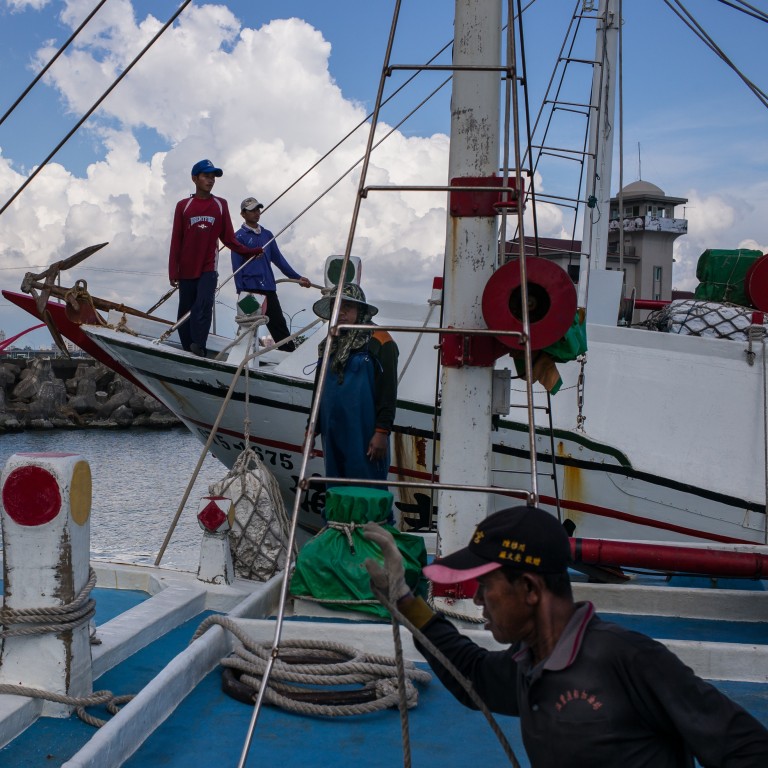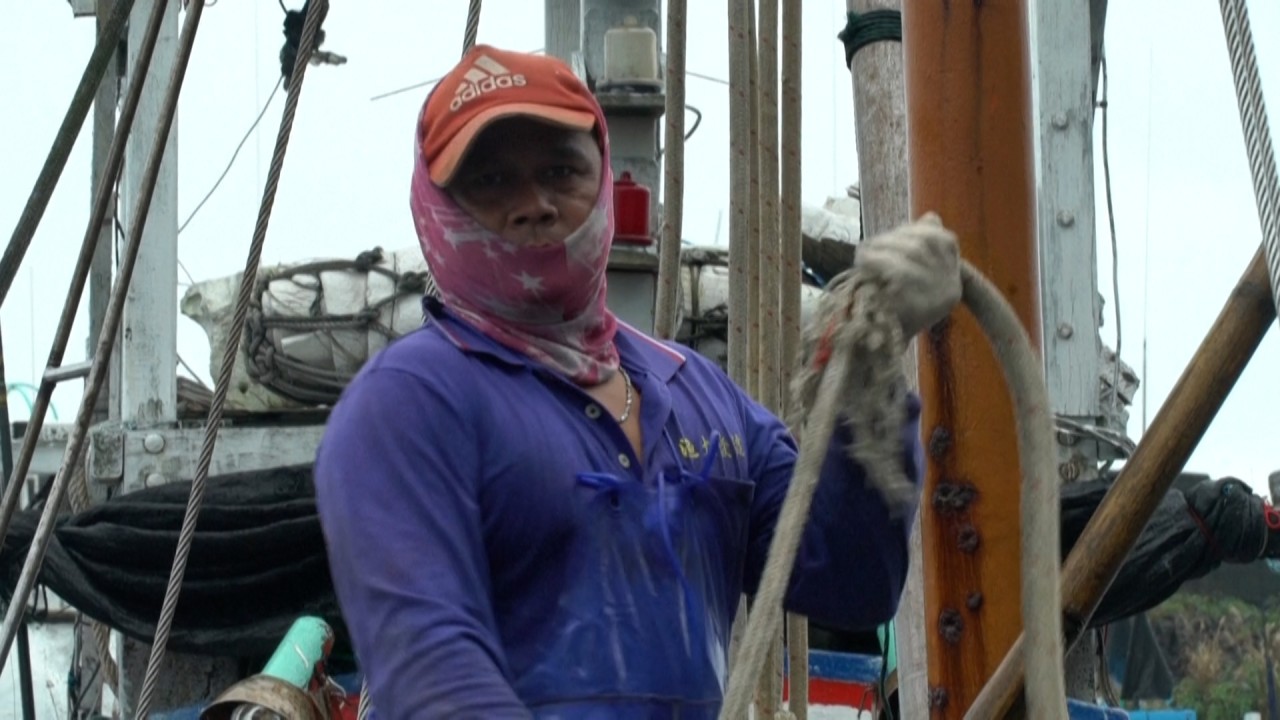
Taiwan’s labour reputation hit as Greenpeace urges downgrade over migrant-worker violations
- With world’s second-largest fishing fleet, Taiwan is at risk of being shunned by Southeast Asian workers at a time when it is desperate to shore up its workforce
- Global coalition says Taiwanese authorities have not done enough to improve fishing industry conditions, and it wants Washington to weigh in
Greenpeace USA and other overseas advocacy groups say that migrants working for the Taiwanese fishing fleet, the world’s second-largest, are pushed into “forced” labour – striking a blow to Taiwan’s image as it recruits from abroad to offset a declining domestic workforce.
The environmental group, along with the Global Labour Justice-International Labour Rights Forum and the Seafood Working Group, said in a statement on Monday that they had also found “labour rights violations” and “human rights violations” in Taiwan.
The Washington-based Seafood Working Group – a global coalition of human rights, labour and environmental organisations – urged the US State Department’s Office to Monitor and Combat Trafficking in Persons to lower Taiwan’s status from Tier 1 to Tier 2 in its 2023 “Trafficking in Persons Report”.
“The Taiwanese government made efforts to improve the working conditions in its distant water fishing industry,” the statement acknowledges. “However, these have not been appreciable.”
Taiwan to ‘systematically improve’ migrant worker rights in fishing industry
If migrant workers in Indonesia, Vietnam and the Philippines become increasingly put off by Taiwan’s reputation, they will be more likely to pick other parts of the world seeking migrant workers, according to activists and economists. Migrants from those three countries make up much of Taiwan’s 35,000-strong fishing crews.
“If these problems aren’t solved in Taiwan, it will be difficult when we go out to seek workers,” said Darson Chiu, a research fellow with the Taiwan Institute of Economic Research in Taipei. “They won’t come.”
European and North American jobs are safer than work in Taiwan, said Wong Ying-dah, director of the Department of Policies on Migrant Workers under the Taiwan-based aid group Serve the People Association. And in Asia, he said, Japan and South Korea usually pay better.
“Of course, they will go to other countries that offer better and safe jobs,” Wong said. “Some of the workers we know have transferred to those countries already.”
While not a pillar of Taiwan’s tech-led US$820 billion-plus economy, Chiu said, fishing employs people throughout the island’s numerous coastal towns and brings in seafood for domestic consumption.
Taiwan had the world’s second-largest distant-water fishing fleet as of 2020, at 1,110 vessels, according to the US Department of Labour.
Hong Kong, Singapore and South Korea are all trying to fill labour shortages – in many cases with overseas migrants. Taiwan’s Ministry of Labour said last month that it would relax specific rules to allow in 28,000 more migrant workers. About 720,000 migrant workers currently live in Taiwan.
The advocacy group’s statement says there are “well-documented cases of labour abuse” in the fishing industry, including child labour or “forced” labour in the processing of fish. Some people, the statement says, have had their wages withheld.
‘The right direction’: Taiwan seeks 400,000 foreigners for critical sectors
Over the past year, Taiwan made improvements, said Chiu Yi-hsien, chief of distant-water fishing with the island’s Fisheries Agency.
The government has approved regulations that require captains or boat owners to pay wages rather than relying on brokers to do it, Chiu said. He said boat operators must now make crew members clock in and out to guard against overwork, and that 60 inspectors are tasked with boarding boats on return to ports to check in with the foreign crew members.
“Our view is that we follow the law and obey international maritime conventions,” Chiu said.
Government departments have “made some improvements in recent years”, such as increasing crew salaries and installing CCTV cameras on fishing vessels, the statement says. The cameras can help monitor working hours.
“From my perspective, even though there are all kinds of barriers and traps, in order to make money, [fishing boat workers] can only roll the dice,” said Allison Lee, secretary general with the Taiwan-based Yilan Migrant Fisherman Union advocacy group.


